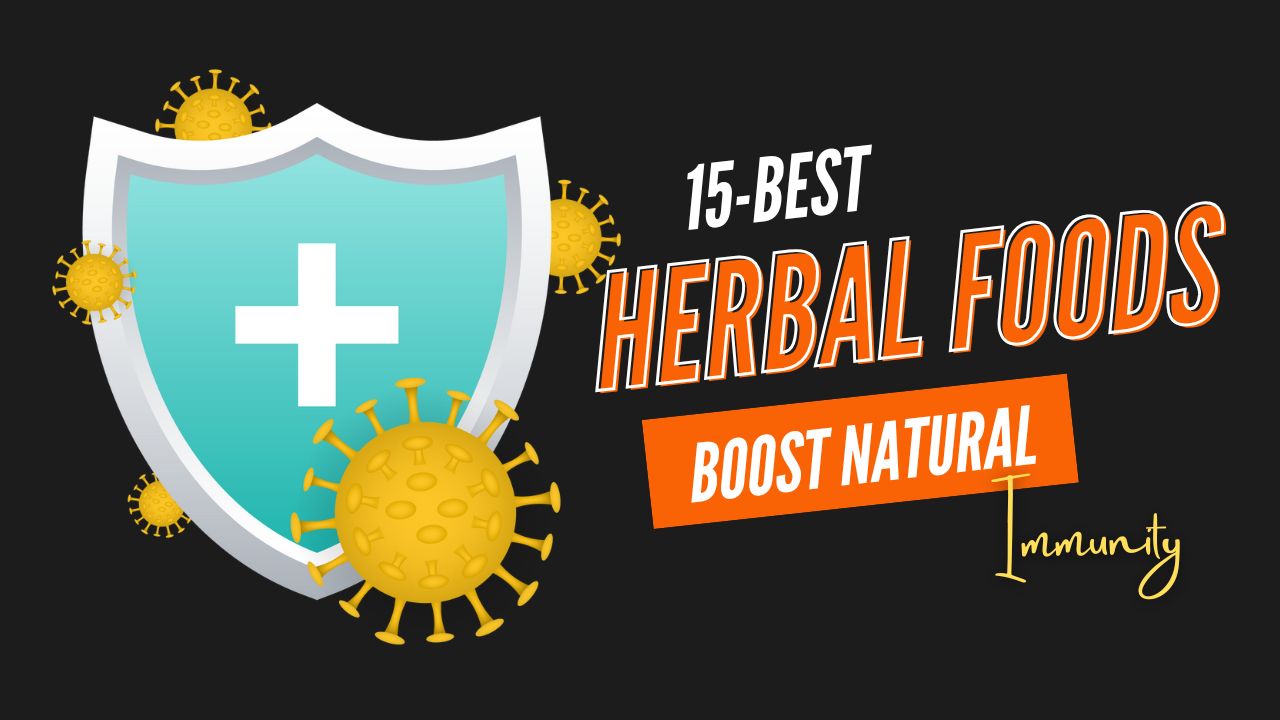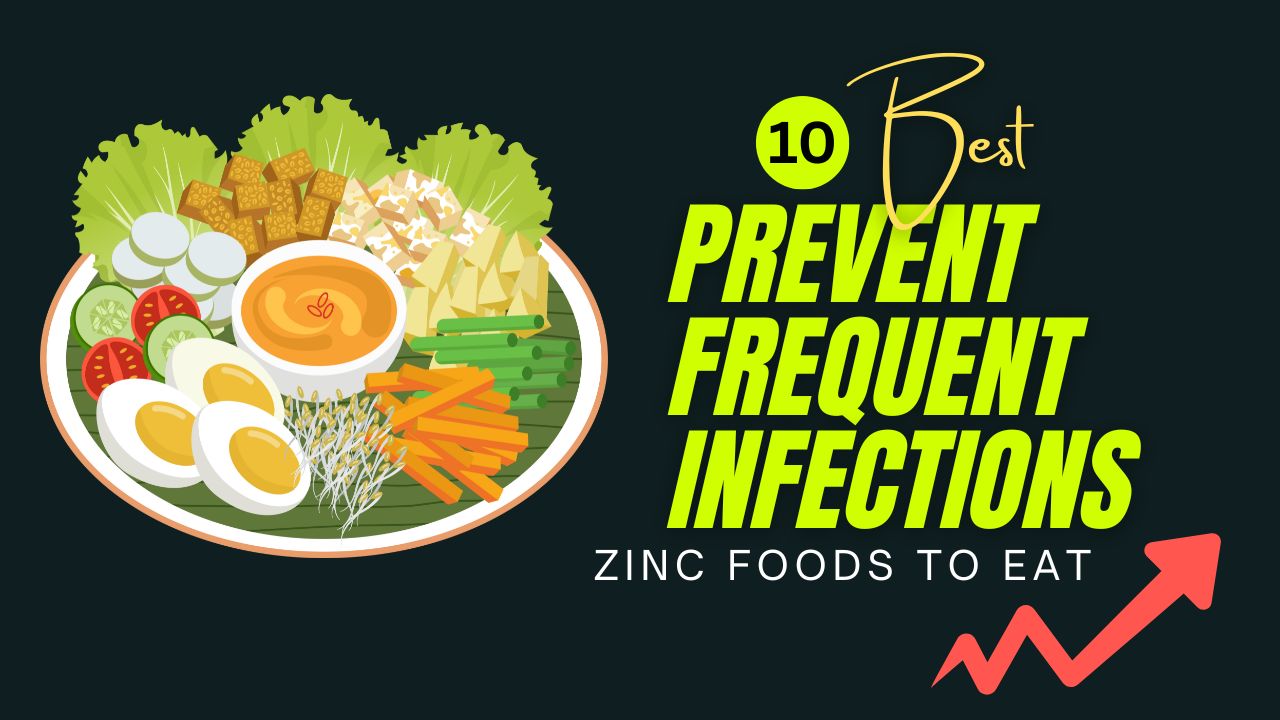Do you often find yourself reaching for tissues at the slightest sniffle? Or perhaps you feel your energy dip whenever the season changes?
Strengthening your immune system isn’t just about supplements—your diet plays a key role. In fact, certain foods have been scientifically proven to enhance your body’s defense mechanisms, helping you fend off colds, flu, and seasonal illnesses.
In this post, we’ll explore 10 powerhouse foods that boost immunity, explain the best ways to consume them, who should eat or avoid them, and how to store them for maximum benefit. Plus, you’ll discover some surprising facts about common ingredients that you might already have in your kitchen.

Table of Contents
10 Best Foods That Build Immunity
1. Citrus Fruits
Why it helps: Citrus fruits, such as oranges, lemons, limes, and grapefruits, are packed with vitamin C—a critical nutrient for immune health. Vitamin C helps stimulate the production of white blood cells, which fight infections.
Interesting fact: Humans can’t produce vitamin C naturally, unlike some animals. That means consuming citrus fruits regularly is essential.
Best Ways to Eat or Use It
- Eat raw as a snack.
- Add slices to water or tea.
- Blend into smoothies with leafy greens.
- Use as salad dressings for a zesty twist.
Tip: Pair citrus with foods rich in bioflavonoids like bell peppers to boost vitamin C absorption.
Who Should Eat / Avoid
- Good for: Anyone wanting to boost immunity, athletes, pregnant women.
- Avoid/Limit if: You have acid reflux or citrus allergies.
Storage & Buying Tips
- Choose firm, brightly colored fruits without soft spots.
- Store at room temperature for a few days or in the fridge for up to two weeks.
Do’s & Don’ts
| ✅ Do | ❌ Don’t |
|---|---|
| Eat fresh daily | Rely solely on supplements |
| Combine with other fruits | Store for too long |
Possible Side Effects
Overconsumption may cause heartburn or stomach upset in sensitive individuals.
2. Garlic
Why it helps: Garlic contains allicin, a compound that fights bacteria and viruses. Studies suggest it can reduce the severity and duration of common colds.
Myth busting: Many people believe raw garlic is always better. While raw garlic has potent compounds, cooking it lightly preserves most benefits.
Best Ways to Eat or Use It
- Add minced garlic to soups, sauces, and stir-fries.
- Roast whole cloves for a milder flavor.
- Mix with olive oil as a spread for bread or vegetables.
Who Should Eat / Avoid
- Good for: Adults seeking natural immune support.
- Avoid/Limit if: You take blood-thinning medications or have a sensitive stomach.
Storage & Buying Tips
- Store in a cool, dry place with ventilation.
- Avoid refrigeration; it may sprout or lose flavor.
Do’s & Don’ts
| ✅ Do | ❌ Don’t |
|---|---|
| Crush or chop before cooking | Cook at very high heat for long |
| Combine with healthy fats | Eat excessively raw |
Possible Side Effects
May cause bad breath or mild digestive upset if eaten in large amounts.
3. Ginger
Why it helps: Ginger is known for its anti-inflammatory and antioxidant properties. It can soothe sore throats and may even help prevent respiratory infections.
Interesting fact: In traditional medicine, ginger has been used for thousands of years to treat nausea, colds, and flu.
Best Ways to Eat or Use It
- Fresh ginger tea with honey.
- Add grated ginger to smoothies, soups, or stir-fries.
- Make ginger shots for a concentrated immune boost.
Who Should Eat / Avoid
- Good for: People with digestive issues, cold sensitivity, or anyone wanting to strengthen immunity naturally.
- Avoid/Limit if: You have gallstones or take blood-thinning medications.
Storage & Buying Tips
- Choose firm, smooth roots without wrinkles.
- Store in the fridge in a sealed bag or freeze for longer shelf life.
Do’s & Don’ts
| ✅ Do | ❌ Don’t |
|---|---|
| Peel before use | Boil too long; lose nutrients |
| Pair with lemon or honey | Overconsume in concentrated forms |
Possible Side Effects
High doses may cause mild heartburn or diarrhea.
4. Yogurt
Why it helps: Yogurt is rich in probiotics—live bacteria that support gut health. A healthy gut is crucial for a strong immune system.
Interesting fact: Around 70% of your immune system is in your gut, meaning probiotic-rich foods like yogurt directly influence immunity.
Best Ways to Eat or Use It
- Plain yogurt as a snack with nuts or fruits.
- Smoothies for breakfast or post-workout recovery.
- Use as a base for dressings or dips.
Tip: Look for yogurts with “live and active cultures” for maximum benefit.
Who Should Eat / Avoid
- Good for: Everyone, especially those prone to digestive issues.
- Avoid/Limit if: Lactose intolerant or allergic to dairy.
Storage & Buying Tips
- Store in the fridge at or below 40°F (4°C).
- Check expiration dates carefully.
Do’s & Don’ts
| ✅ Do | ❌ Don’t |
|---|---|
| Eat plain or with natural toppings | Choose flavored yogurts high in sugar |
| Pair with fiber-rich foods | Leave out at room temperature for long |
Possible Side Effects
Excess may cause bloating in sensitive individuals.
5. Spinach
Why it helps: Spinach is rich in vitamin C, antioxidants, and beta-carotene, all of which enhance infection-fighting ability.
Do you know: Cooking spinach can actually increase its antioxidant levels, contrary to popular belief.
Best Ways to Eat or Use It
- Raw in salads or smoothies.
- Lightly sauté with olive oil.
- Add to soups, stews, or omelets.
Who Should Eat / Avoid
- Good for: Anyone seeking more greens for immunity.
- Avoid/Limit if: You have kidney stones due to oxalate content.
Storage & Buying Tips
- Select dark green, crisp leaves without yellowing.
- Keep in a perforated plastic bag in the fridge.
Do’s & Don’ts
| ✅ Do | ❌ Don’t |
|---|---|
| Lightly cook to enhance nutrients | Overcook; lose vitamins |
| Pair with healthy fats | Buy pre-wilted leaves |
Possible Side Effects
Excessive consumption may contribute to kidney stone formation in susceptible people.
6. Almonds
Why it helps: Almonds are a great source of vitamin E, an antioxidant that supports immune function. They also provide healthy fats and protein.
Interesting fact: Just a handful (about 23 almonds) provides nearly half of the daily recommended vitamin E intake.
Best Ways to Eat or Use It
- Raw or roasted as a snack.
- Add to yogurt, oatmeal, or salads.
- Use almond butter in smoothies or spreads.
Who Should Eat / Avoid
- Good for: Adults, athletes, and those on plant-based diets.
- Avoid/Limit if: You have nut allergies.
Storage & Buying Tips
- Store in an airtight container in a cool, dark place.
- Refrigerate for longer shelf life, especially in warm climates.
Do’s & Don’ts
| ✅ Do | ❌ Don’t |
|---|---|
| Eat in moderation | Consume salted or sugary versions |
| Pair with fruits | Keep in humid environment |
Possible Side Effects
May cause allergies in sensitive individuals.
7. Turmeric
Why it helps: Curcumin, the active compound in turmeric, has potent anti-inflammatory and antioxidant properties that strengthen immunity.
Myth: Turmeric alone can cure illnesses. Truth: It supports the immune system but works best as part of a balanced diet.
Best Ways to Eat or Use It
- Add to curries, soups, and rice dishes.
- Mix with warm milk (golden milk) for soothing benefits.
- Use in smoothies with black pepper to enhance absorption.
Who Should Eat / Avoid
- Good for: People looking for anti-inflammatory benefits.
- Avoid/Limit if: You have gallbladder issues or take blood-thinning medication.
Storage & Buying Tips
- Choose bright yellow, finely ground powder or fresh roots.
- Store in a cool, dark place away from moisture.
Do’s & Don’ts
| ✅ Do | ❌ Don’t |
|---|---|
| Combine with black pepper | Overcook for long periods |
| Use regularly in diet | Rely on supplements alone |
Possible Side Effects
High doses may cause stomach upset.
8. Green Tea
Why it helps: Green tea is rich in antioxidants called catechins, which improve immune function and reduce the risk of infections.
Interesting fact: Drinking green tea regularly may help reduce the duration of colds.
Best Ways to Eat or Use It
- Drink hot or cold.
- Add lemon or mint for flavor.
- Use as a base for smoothies.
Who Should Eat / Avoid
- Good for: Adults, especially those who enjoy caffeine.
- Avoid/Limit if: Sensitive to caffeine or pregnant women (moderate intake).
Storage & Buying Tips
- Store in an airtight container away from light and heat.
- Use within 6 months for best flavor.
Do’s & Don’ts
| ✅ Do | ❌ Don’t |
|---|---|
| Steep for 2–3 minutes | Overbrew; bitter taste |
| Drink unsweetened or lightly sweetened | Add sugar excessively |
Possible Side Effects
Too much caffeine may cause insomnia or jitters.
9. Bell Peppers
Why it helps: Bell peppers are rich in vitamin C and beta-carotene, boosting immunity and skin health.
Do you know: Red bell peppers contain almost three times more vitamin C than an orange.
Best Ways to Eat or Use It
- Raw in salads or dips.
- Sautéed or roasted with olive oil.
- Stuffed with grains and protein for a complete meal.
Who Should Eat / Avoid
- Good for: Everyone, especially immune-conscious individuals.
- Avoid/Limit if: Allergic to peppers.
Storage & Buying Tips
- Choose firm, shiny peppers without wrinkles.
- Store in the fridge crisper drawer for up to a week.
Do’s & Don’ts
| ✅ Do | ❌ Don’t |
|---|---|
| Eat raw or lightly cooked | Overcook and lose nutrients |
| Pair with healthy fats | Store in warm areas |
Possible Side Effects
Minimal; may cause mild digestive discomfort in sensitive individuals.
10. Mushrooms
Why it helps: Mushrooms, especially shiitake and maitake, contain beta-glucans that enhance immune function.
Interesting fact: Some compounds in mushrooms have antiviral and antibacterial properties.
Best Ways to Eat or Use It
- Sauté in olive oil with garlic.
- Add to soups, stews, or omelets.
- Roast with herbs as a snack or side dish.
Who Should Eat / Avoid
- Good for: Immune-conscious individuals and vegetarians.
- Avoid/Limit if: Allergic to mushrooms or have specific digestive issues.
Storage & Buying Tips
- Choose firm, dry mushrooms without slimy spots.
- Store in a paper bag in the fridge to prevent moisture buildup.
Do’s & Don’ts
| ✅ Do | ❌ Don’t |
|---|---|
| Cook lightly for flavor and nutrients | Eat moldy or overly wet mushrooms |
| Combine with garlic and olive oil | Leave at room temperature too long |
Possible Side Effects
Rare; some people may experience mild digestive upset.
Conclusion
Adding these 10 immunity-boosting foods to your diet can help you stay healthier and reduce the frequency of colds and flu.
From citrus fruits rich in vitamin C to probiotics in yogurt and the anti-inflammatory power of turmeric, your kitchen already has a treasure trove of natural immune support.
Start incorporating these foods into your daily meals—whether in smoothies, salads, teas, or simple snacks—and notice the difference in your energy, resilience, and overall well-being.
Frequently Asked Questions (FAQs)
Can these foods completely prevent colds and flu?
No, while these foods strengthen your immune system, they cannot completely prevent illness. A balanced diet, regular exercise, adequate sleep, and hygiene practices are also important.
How often should I eat these immunity-boosting foods?
Including at least one or two of these foods daily can support overall immune health. Variety is key for getting all essential nutrients.
Are supplements better than eating these foods?
Whole foods provide a combination of vitamins, minerals, antioxidants, and fiber that supplements alone cannot fully replicate. Supplements may help if dietary intake is insufficient.
Can children eat all these foods?
Most of these foods are safe for children, but moderation is important. Avoid honey for children under 1 year, and check for allergies (e.g., nuts or dairy).
Can I eat these foods if I have medical conditions?
Some foods, like garlic, ginger, or high-vitamin C fruits, may interact with medications or certain health conditions. Always consult a doctor if you have chronic illnesses or take prescription drugs.
How can I include these foods in a busy lifestyle?
Smoothies, salads, roasted snacks, and pre-prepared veggie mixes make it easy to incorporate these foods without spending much time cooking.
Are frozen versions as good as fresh?
Yes, frozen fruits and vegetables are often picked at peak ripeness and can retain most nutrients, making them a convenient alternative.
Can I combine these foods in one meal?
Absolutely! For example, a salad with spinach, bell peppers, citrus slices, almonds, and a light yogurt dressing is a nutrient-packed immunity booster.
w long does it take to see benefits?
Immune support builds over time. Regular consumption of these foods, along with a healthy lifestyle, may reduce the frequency and severity of colds over weeks to months.










